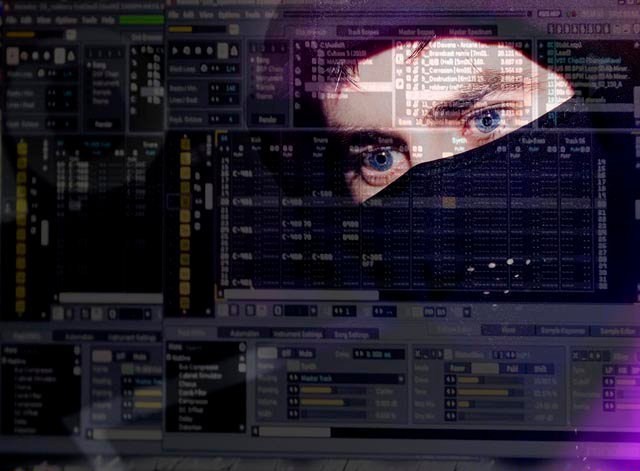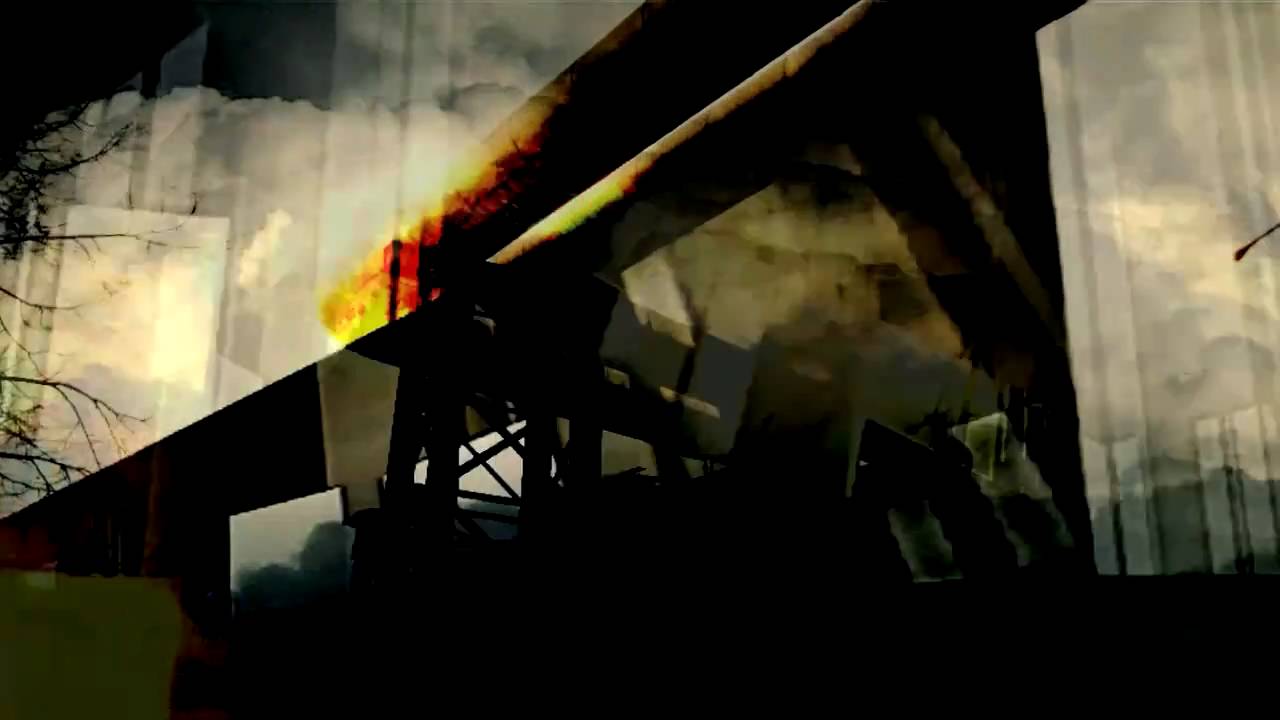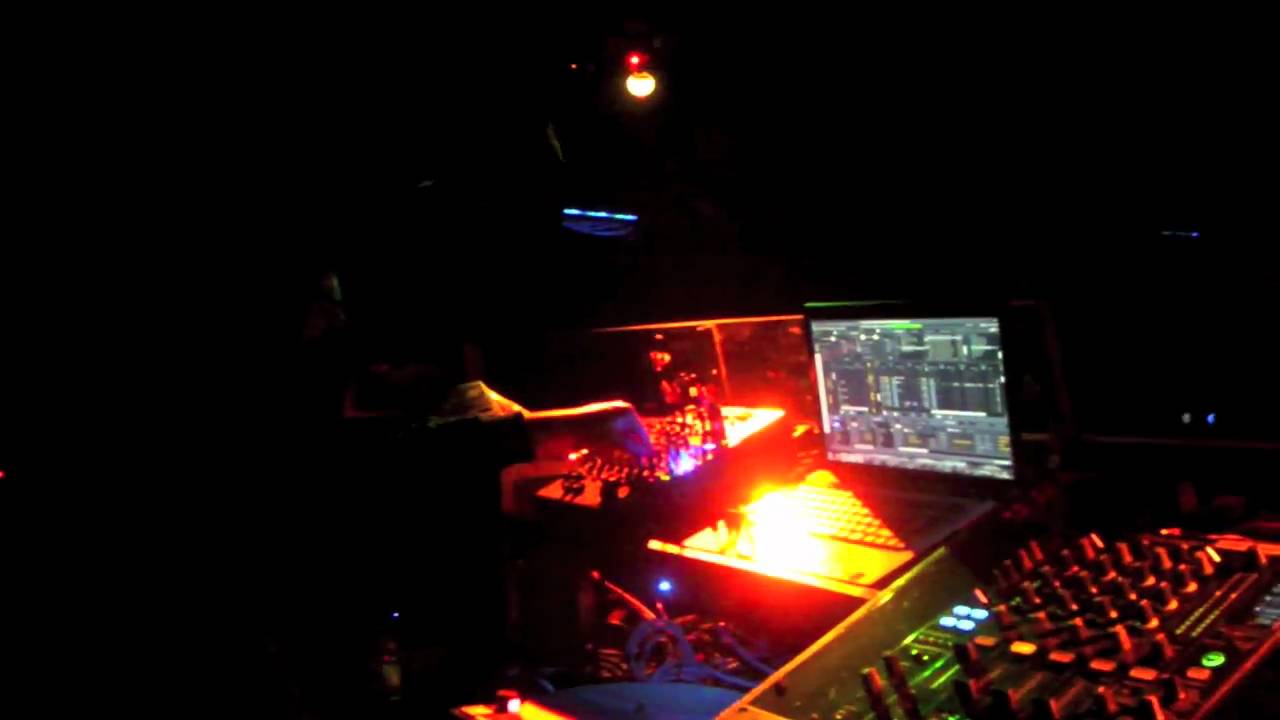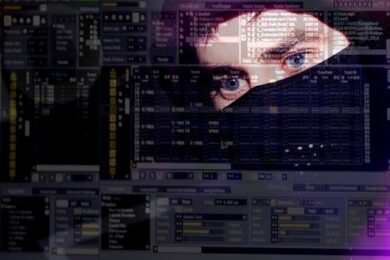Anodyne isn’t strictly a new entity. In fact, the man born Colin Cloughley has releases dating back to the mid 90s, making his career longer than most in the fickle world of electronic music. But since his appearance on a compilation for seminal UK electronica label Skam Records in 1996, Cloughley’s musical activities have slipped below the radar. He’s clearly been keeping busy during that time, though, as he re-emerged last year with a mature and fully-formed sound, drawing heavily on the golden era in which he cut his teeth, but with a technical and compositional know-how which speaks of years of experience.
Cloughley’s return to form, Corrosion, was an album-length homage to the dancefloors of the Warp era; a mixture of majestic techno and breakbeat hardcore which went a long way to recapturing the rush of the new which made that music so influential. Garnering plenty of attention and some high profile remix work, the album is followed this year by a slew of EPs showcasing more disparate sides of the Anodyne sound: the recently released Destruction 808 EP for dancefloor heat, and now the Empires EP on ever-reliable London label Combat Recordings provides a more coolly cinematic experience.
Cloughley may have been absent from the scene for more than a decade, but his return is strangely timely; the Anodyne sound, while drawing on the sonic tropes of the 90s, finds touchstones with the searing industrial techno of the Downwards camp and the paranoiac bass pressure of dubstep’s more screwfaced exponents. Not to mention his being embraced by the establishment figures he clearly admires, from Rob Hall of Skam to Warp stalwarts Autechre and The Black Dog. Colin spoke to The Quietus from his native Ireland to discuss what’s changed in the past 15 years – and what’s stayed the same.
You’ve got quite a history on the electronic music scene. Could you talk a bit about your activities in the 90s? You had a some music released by Skam records, right?
Colin Cloughley: Back then I was writing about 90 minutes of music a month and making up mix tapes. I started sending them to Irish label Ultramack and released my debut album with them in 1996. They ran U:Mack club nights at The Funnel in Dublin, and I got to play support and meet most of my musical heroes and their labels: Autechre, Skam, Richard H. Kirk, Speedy J, Mike Paradinas… I’d pass on my recent tapes to whoever was playing. So that’s where the Skam connection started.
Why did you then decide to let the music thing lie for a decade or so?
CC: I always wrote music for myself first, then would send finished work out. I never stopped writing music, I just stopped sending stuff out and eventually decided to focus and start upping my production levels. I started researching what DJs play, what works, mastering techniques, all kinds of things and started putting them into practice.
How does the music you’re making now – Corrosion last year and now these EPs – relate to what you were doing back then? Do you feel like you’re still exploring similar sounds and ideas?
CC: I actually did much crazier programming back in the 90s. But the over-complexity of some of it didn’t translate well to the dancefloor – and at times even for home listening – so I’ve toned down things and fine tuned them until everything flows from start to finish. I like emotive music, something that really gets in your head and makes you feel something. Most of Corrosion was written and produced during a break-up and it comes across in the record to an extent. I had taken a break after Corrosion and started writing new material, and wrote the Empires EP and the Destruction 808 EP back to back. Two very different sides to my music – but I’d prefer to be more flexible than known for only one style.
What would you say your reference points are in your music? It’s obviously indebted to 90s warehouse electronica, but also there are shades of Drexciya-style electro in there, and early 90s hardcore…
CC: I only heard Drexciya for the first time recently. There’s some similarities alright, but the excitement, buzz and innovation I felt hearing Aphex, Altern-8 and Autechre in the 90s (and that’s just the As) has stayed with me. Moody, atmospheric music you can’t possibly create with anything but electronic instruments and a pile of creativity. Sometimes an artist’s sound can be more about their choice of notes, their sequencing, than purely the sounds they use.
You’ve had recent DJ support and remixes from some big names – Rob Hall, Autechre, Plaid. How do you find the electronic music scene these days? Do you think it’s as vibrant now as it was in the late 90s?
CC: There’s so much more music out now, it’s impossible to keep up with things. Back when I got into it all there was a small area in some record shops for electronica; it was possible to listen to all the best new music within a few days…stunningly different music. Production has changed, now there’s much more bass and everything is mastered louder, but it’s hard to find something that hits the spot. Everyone and their Aunt puts unfinished stuff on Soundcloud. Which is great in one way, but if there’s too much music already for sale, it’s hard to find time to dig through all the free stuff to find a gem.
And how have you found the process of putting out a record now as opposed to then? Given the explosion of the internet -downloads etc – have things changed dramatically?
CC: It’s bizarre. You can literally finish up work on a track and get the art and everything uploaded as a finished product to buy online without any cost. But since there are so many others doing the same, to stand out you sometimes need to raise the game a bit more. It’s not about making cash from it; you just want each record to represent what you want the world to hear from you. I always work knowing that if I’m 100% happy with what I’ve done, as long as one other person enjoys that piece of work I feel I’ve accomplished something.
Could you talk a bit about how you make the music – I gather you use a mix of hardware and software?
CC: I mainly do everything in software, but some tracks are assembled out of jam sessions with various bits of old hardware. The track ‘707’ on Corrosion is a mix of chords I played on a Casio SK-5 using a few different sounds and my modded TR-707. Everything was chopped up and reassembled and went from a quick 2 minute idea to the full track. I have days where I just turn on some synth and hit record and start creating sounds and playing notes. Being away from your usual sequencer can be a great feeling. Instead of predicting sequences, you just play.
Does it take you a long time to get a track to a finished state?
CC: It depends on the tune. Some tracks I can work on for days or weeks to get perfect, others are complete in a day. I keep all versions as I make changes, there are good days where everything improves incrementally, other days you go back to an early version and start over. I usually write large amounts of 90 second ideas, then at a later date, go back and work on them.
I gather you’ve been working on an Anodyne live show. Could you talk a bit about that?
CC: Yeah, I was rewriting a load of tunes for the launch of my Destruction 808 EP. It’s hard to predict what a crowd will want from me; some want lush electronica, others want you to just bang it out. The easiest way is to prepare a bit of everything and gauge the crowd.
Finally, what’s next for Anodyne?
CC: The Destruction 808 EP is out on Earwiggle, and the Empires EP and remixes on Combat Recordings. Then I’m finishing work on the War of The Machines Mini LP for Acroplane. Then I’ll probably rest for a few days! This was meant to be my "taking it easy" year…
The ‘Empires’ EP is out on Combat Recordings now. For more information and to order it, click here. A remix EP of Empires, featuring featuring contributions from Plaid, Subeena, AQF, Noiz and more, is also expected soon.





